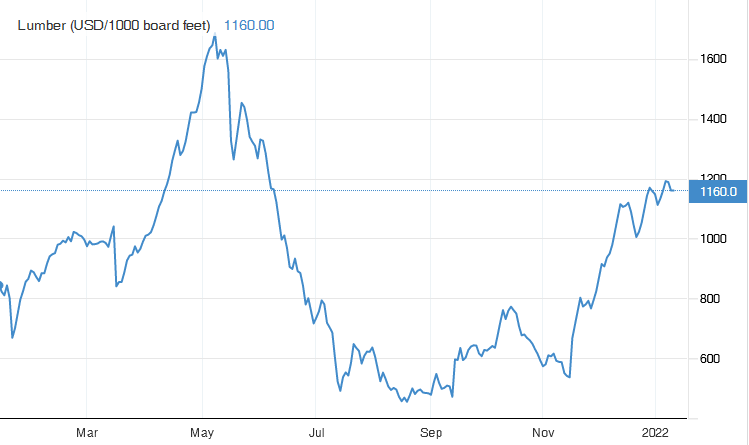
Perhaps you are wondering how to analyse stocks. This article will cover fundamental, technical, quantitative and qualitative methods. It is important to be familiarized with terms and methods when learning how to analyse stocks. Since charts are difficult to read, it is impossible to accurately understand stock price. Read on to learn more. Here are some helpful tips. Below are some fundamental terms and methods for analysing stocks. These terms and methods will help you determine the health of your stock market.
Fundamental analysis
Fundamental analysis's primary purpose is to assess a company's financial and historical value. The analysis is used to predict the company’s future growth and stability as well as its investment potential. The analysis is based on quantitative data, and excludes personal opinions. Traders lack confidence in their ability predict prices on a strictly discretionary basis, so it is crucial to be objective. Future traders will also be able to use fundamental analysis to forecast certain variables.
Fundamental analysis is not easy, but it can have many benefits. It can be used correctly to identify the true value of a stock and help you avoid making market mistakes. Investors can avoid the daily fluctuations in the stock market by buying a company based upon its intrinsic value. But fundamental analysis is a complicated process, and even the most diligent and independent investors will doubt its validity. You'll still be on the right tracks if these guidelines are followed.

Technical analysis
Technical analysis of stocks refers to a type of technical analysis which assumes that the current stock prices reflect all information available. However, prices are a function both of supply and demand, but they reflect the emotions and psychology of people. Consequently, these prices can move dramatically based on expectations and other factors. A "technician", on the other hand, ignores this emotional factor and trades based solely on the company's chart patterns.
Charles Dow, the inventor of the Dow Jones Industrial Average, is responsible for technical analysis. He used this system to explain market events and direction. This system is used by several other financial analysts to analyze markets and make their money. Charles Dow is credited with introducing technical analysis into the mainstream. The Dow Jones Industrial Average forms the basis of many technical analysis for investors today. If you're new to investing, a fundamental approach might not work for you.
Quantitative analysis
Often referred to as the stock market's "Q-factor," quantitative analysis is the method of determining the stock's value by examining the company's financial statements. Investors will be able to identify which stocks are worth considering and which ones are not. Investors want to know the industry structure, incomes, expenses and assets, as well as liabilities.
Performing a quantitative analysis requires the ability to analyze vast amounts of data. To make informed investment decisions, a quantitative analyst must be able to identify patterns in the data. No single indicator or formula will guarantee success. For example, a stock's intrinsic strength should dictate whether it will rise or fall in price. A quantitative analysis must identify factors that have contributed to past and future success. This includes the market capitalization of the company.

Qualitative analysis
A qualitative analysis of stocks, in addition to analysing a company’s financial statements can help investors identify which companies are more profitable than others. Companies that operate in various industries are typically better candidates for qualitative analysis. But theoretical considerations are not always consistent with reality. These tips will help you make the right investment decision. Let's look at the differences between qualitative and quantitative analysis.
The fundamental analysis provides a solid starting point. It examines three broad areas: financial, personal, business. It also includes the understanding of company specific factors such as management and financial position. To add to the data, other documents could be equally valuable. You can use qualitative factors, such as corporate governance practices, corporate governance ethics, to help you understand qualitative analysis. You must also assess a company’s consistency when it comes to business strategies.
FAQ
How do I choose a good investment company?
Look for one that charges competitive fees, offers high-quality management and has a diverse portfolio. Commonly, fees are charged depending on the security that you hold in your account. Some companies don't charge fees to hold cash, while others charge a flat annual fee regardless of the amount that you deposit. Some companies charge a percentage from your total assets.
You also need to know their performance history. Poor track records may mean that a company is not suitable for you. You want to avoid companies with low net asset value (NAV) and those with very volatile NAVs.
You should also check their investment philosophy. In order to get higher returns, an investment company must be willing to take more risks. They may not be able meet your expectations if they refuse to take risks.
How do I invest in the stock market?
Brokers can help you sell or buy securities. Brokers buy and sell securities for you. When you trade securities, you pay brokerage commissions.
Banks are more likely to charge brokers higher fees than brokers. Banks will often offer higher rates, as they don’t make money selling securities.
If you want to invest in stocks, you must open an account with a bank or broker.
If you are using a broker to help you buy and sell securities, he will give you an estimate of how much it would cost. The size of each transaction will determine how much he charges.
Your broker should be able to answer these questions:
-
You must deposit a minimum amount to begin trading
-
How much additional charges will apply if you close your account before the expiration date
-
What happens if your loss exceeds $5,000 in one day?
-
how many days can you hold positions without paying taxes
-
What you can borrow from your portfolio
-
How you can transfer funds from one account to another
-
how long it takes to settle transactions
-
the best way to buy or sell securities
-
How to Avoid Fraud
-
How to get help for those who need it
-
If you are able to stop trading at any moment
-
If you must report trades directly to the government
-
If you have to file reports with SEC
-
What records are required for transactions
-
whether you are required to register with the SEC
-
What is registration?
-
How does it impact me?
-
Who is required to be registered
-
When should I register?
What is a fund mutual?
Mutual funds are pools of money invested in securities. Mutual funds provide diversification, so all types of investments can be represented in the pool. This helps reduce risk.
Professional managers manage mutual funds and make investment decisions. Some mutual funds allow investors to manage their portfolios.
Most people choose mutual funds over individual stocks because they are easier to understand and less risky.
Why is a stock security?
Security is an investment instrument whose worth depends on another company. It may be issued by a corporation (e.g., shares), government (e.g., bonds), or other entity (e.g., preferred stocks). If the asset's value falls, the issuer will pay shareholders dividends, repay creditors' debts, or return capital.
Statistics
- Individuals with very limited financial experience are either terrified by horror stories of average investors losing 50% of their portfolio value or are beguiled by "hot tips" that bear the promise of huge rewards but seldom pay off. (investopedia.com)
- Ratchet down that 10% if you don't yet have a healthy emergency fund and 10% to 15% of your income funneled into a retirement savings account. (nerdwallet.com)
- For instance, an individual or entity that owns 100,000 shares of a company with one million outstanding shares would have a 10% ownership stake. (investopedia.com)
- The S&P 500 has grown about 10.5% per year since its establishment in the 1920s. (investopedia.com)
External Links
How To
How to create a trading plan
A trading plan helps you manage your money effectively. It helps you identify your financial goals and how much you have.
Before setting up a trading plan, you should consider what you want to achieve. You might want to save money, earn income, or spend less. You might want to invest your money in shares and bonds if it's saving you money. If you are earning interest, you might put some in a savings or buy a property. And if you want to spend less, perhaps you'd like to go on holiday or buy yourself something nice.
Once you decide what you want to do, you'll need a starting point. It depends on where you live, and whether or not you have debts. You also need to consider how much you earn every month (or week). Income is what you get after taxes.
Next, save enough money for your expenses. These include rent, bills, food, travel expenses, and everything else that you might need to pay. These expenses add up to your monthly total.
Finally, you'll need to figure out how much you have left over at the end of the month. That's your net disposable income.
You're now able to determine how to spend your money the most efficiently.
Download one online to get started. Ask someone with experience in investing for help.
For example, here's a simple spreadsheet you can open in Microsoft Excel.
This graph shows your total income and expenditures so far. You will notice that this includes your current balance in the bank and your investment portfolio.
Another example. A financial planner has designed this one.
It will allow you to calculate the risk that you are able to afford.
Remember: don't try to predict the future. Instead, focus on using your money wisely today.